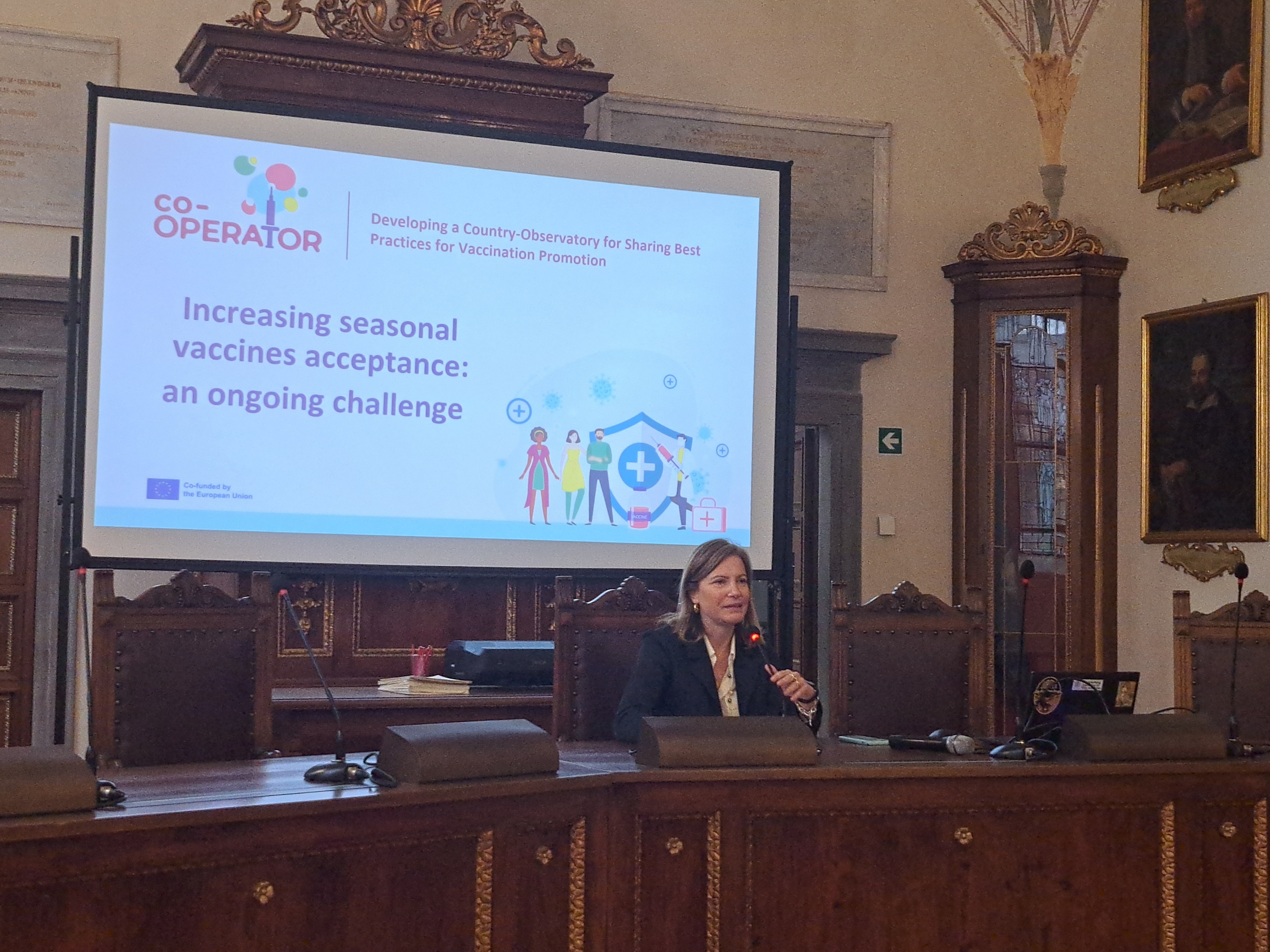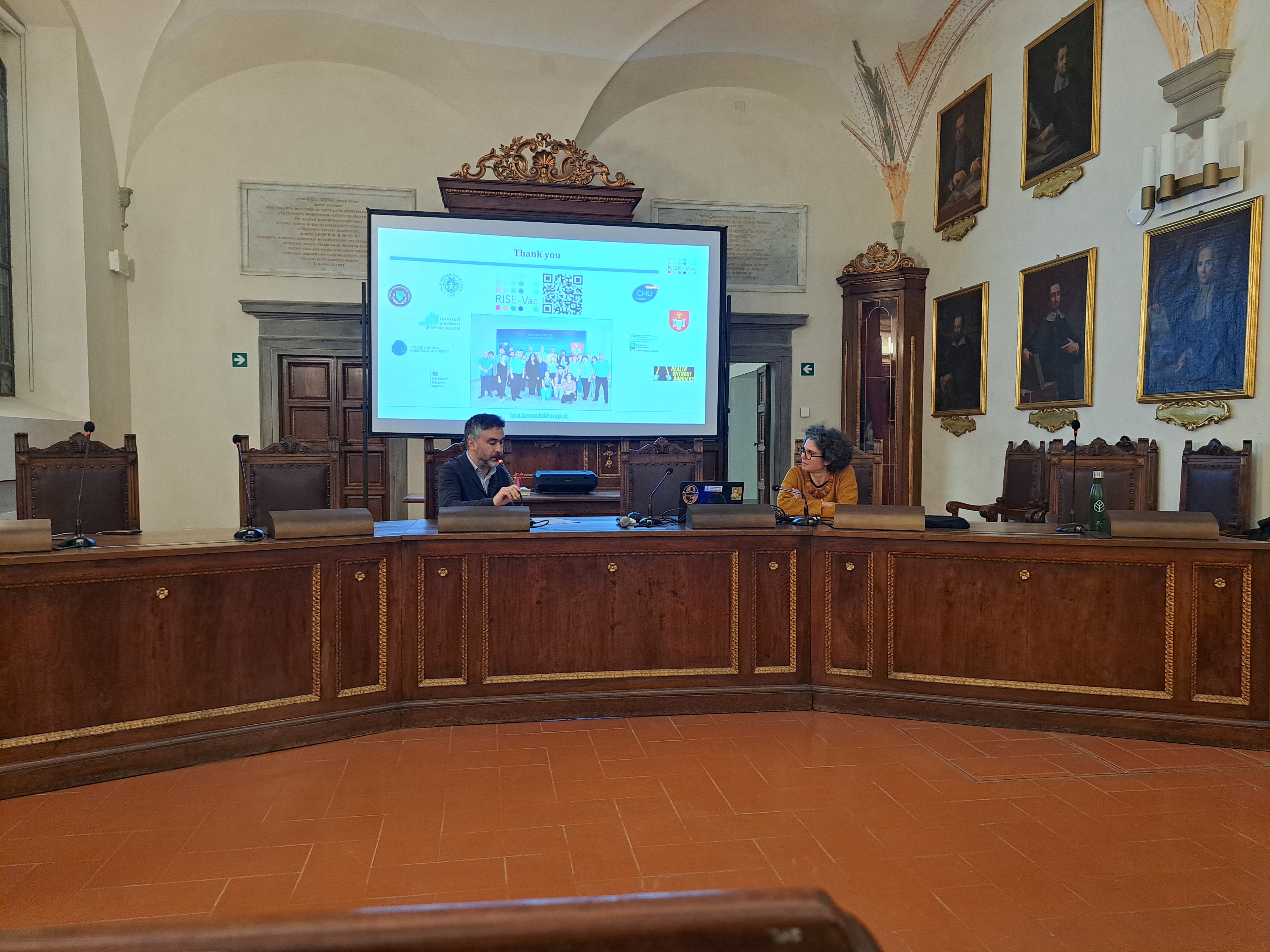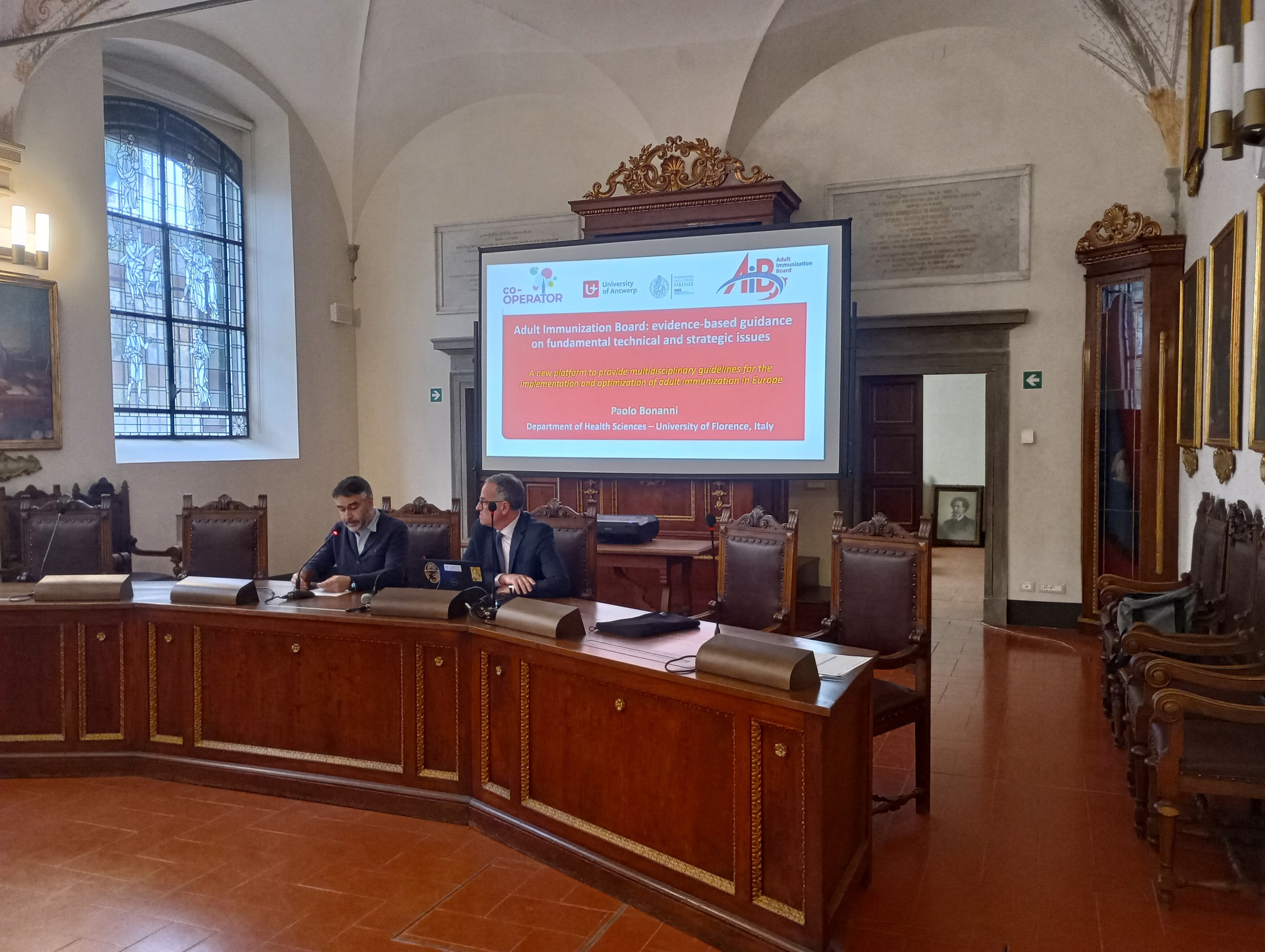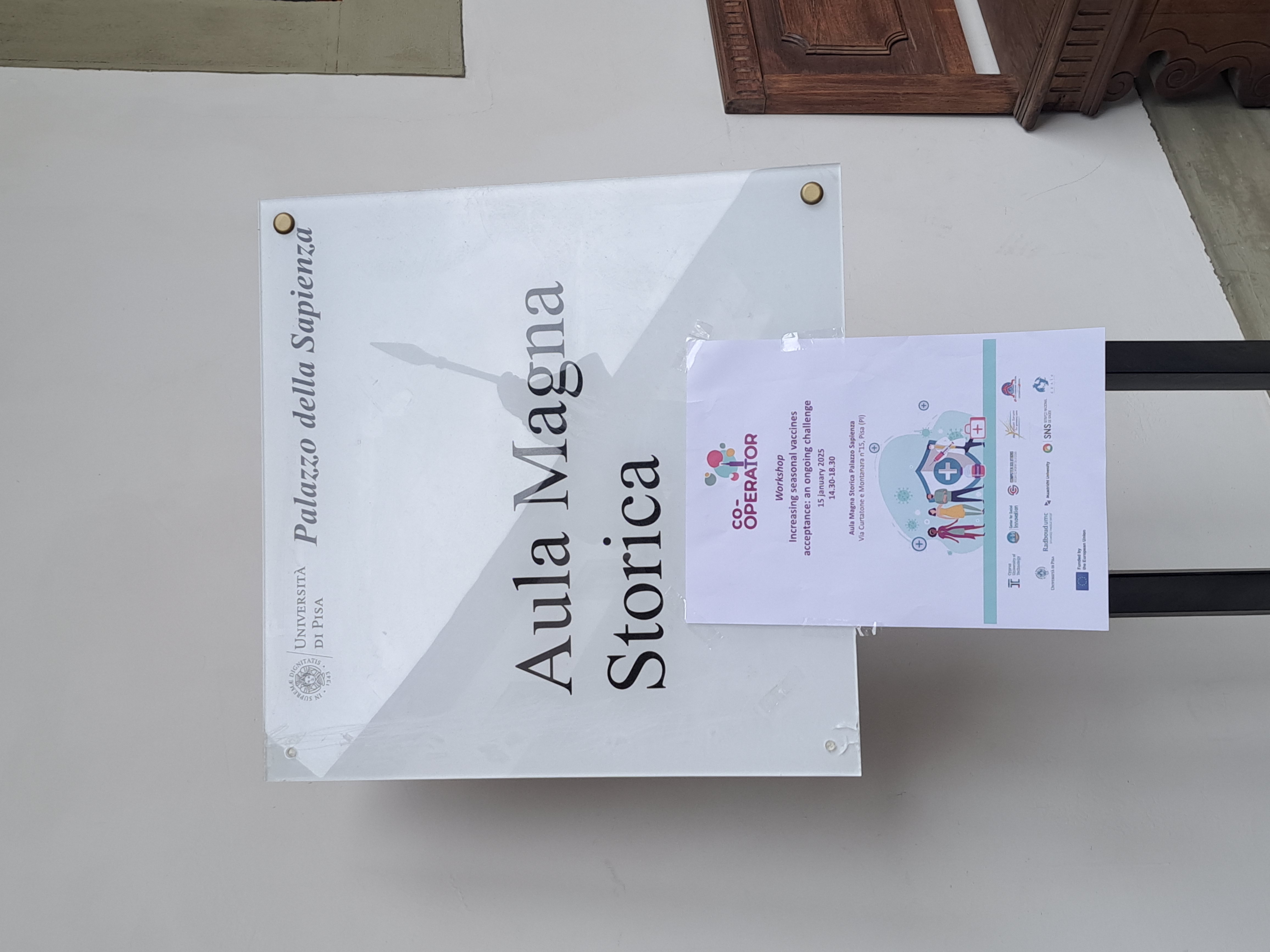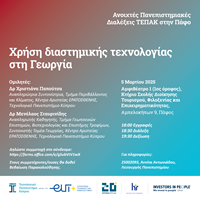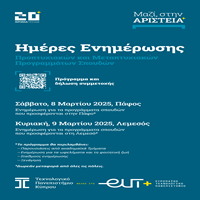The Cyprus University of Technology (CUT) is the coordinator of an EU4Health funded project running from 2023 to 2026, with a budget of €2,173,341 and aiming to inform EU-wide policymaking related to seasonal vaccine acceptance. The 3rd co-OPERATOR project meeting was held in Pisa between January 16th and 17th, 2025 and CUT was represented by Dr. Angelos Kassianos, Director of the Behavioral Science in Health (BSiH) Lab of the Department of Nursing, along with Dr. Laura Panagi and Dr. Maria Kyprianidou (virtually), both postdoctoral researchers of the BSiH Lab. The meeting brought together project members to review the progress, discuss completed and ongoing tasks, and plans for future activities.
During the meeting (16th-17th January), consortium members assessed completed and pending tasks, ensuring alignment with the project’s goals and timelines. A key focus of the discussion was the upcoming interim report, which represents a critical milestone for the project. Another major area of discussion was the pilot phase set to begin in April 2025, during which the tools and methodologies developed for the project will be tested. Extensive discussions ensured all necessary preparations are in place to guarantee a successful implementation of the upcoming tasks. The team also formulated strategic plans for the execution of the pilot studies, addressing potential challenges and identifying key success factors. Monitoring and evaluation mechanisms were established to collect valuable data and insights. Furthermore, the meeting provided a platform for collaboration, fostering synergies between the different work packages to ensure cohesive progress towards the project’s objectives.
Along with the project meeting, the University of Pisa hosted a significant workshop on January 15th, bringing together leading experts in the field of vaccination. The workshop examined seasonal vaccination from three perspectives: the individual, the national health authority, and the healthcare system, with experts highlighting the complex issue of seasonal vaccine acceptance, influenced by individual perceptions, institutional trust, and systemic factors. The workshop featured insightful presentations from renowned experts.
- Professor Paolo Bonanni discussed the Adult Immunization Board’s evidence-based guidance on reducing mortality and morbidity from vaccine-preventable diseases among European adults. Prof Bonanni emphasized the importance of continuous monitoring and adaptation of immunization strategies to prevent serious health outcomes.
- Professor Fabrizio Bert introduced the INF-ACT project, which adopts a comprehensive "One Health" approach to address emerging infectious diseases. Prof Bertz’s presentation highlighted key research areas, including emerging and re-emerging viral diseases, vector-borne pathogens, and bacterial and fungal infections resistant to multiple antibiotics. Additionally, the INF-ACT project incorporates integrated epidemiological monitoring and the development of new therapeutic treatments.
- Professor Lara Tavoschi presented the RISE-Vac project, which seeks to improve the health of the European prison population by promoting vaccine literacy and increasing vaccine uptake. The project is focused on the development of tailored vaccination strategies for incarcerated individuals, who often belong to socially deprived communities with suboptimal access to healthcare.
- Dr. Francesco Paolo Maraglino provided an overview of the current vaccination landscape in Italy, highlighting the challenges and opportunities in increasing vaccine coverage and emphasizing innovative strategies to rebuild and sustain public trust in vaccination.
- Finally, Dr. Angelos Kassianos presented studies conducted at BSiH lab tackling individual and contextual determinants of vaccine acceptance as well as the co-OPERATOR project, which aims to develop a knowledge hub, virtual observatory, and training system to promote effective vaccination messaging.
The workshop summarized valuable insights into ongoing vaccination projects in Italy, fostering greater collaboration among stakeholders. The audience gained actionable strategies to advance vaccination efforts and empower communities to become vaccination advocates.
As the co-OPERATOR project progresses, the team remains dedicated to the successful execution of the pilot studies and the preparation of the interim report—both crucial milestones in demonstrating the project's impact and ensuring its continued success. With significant advancements being already achieved, the team is eager to explore the insights and outcomes that the piloting phase will reveal. The team’s hard work and dedication continue to drive the project forward, strengthening its impact on public health. Further updates will follow as the project advances, highlighting key developments and achievements.
ΖΗΤΟΥΝΤΑΙ ΚΤΗΡΙΑ ΠΡΟΣ ΕΝΟΙΚΙΑΣΗ
The Cyprus University of Technology (CUT) is the coordinator of an EU4Health funded project running from 2023 to 2026, with a budget of €2,173,341 and aiming to inform EU-wide policymaking related to seasonal vaccine acceptance. The 3rd co-OPERATOR project meeting was held in Pisa between January 16th and 17th, 2025 and CUT was represented by Dr. Angelos Kassianos, Director of the Behavioral Science in Health (BSiH) Lab of the Department of Nursing, along with Dr. Laura Panagi and Dr. Maria Kyprianidou (virtually), both postdoctoral researchers of the BSiH Lab. The meeting brought together project members to review the progress, discuss completed and ongoing tasks, and plans for future activities.
During the meeting (16th-17th January), consortium members assessed completed and pending tasks, ensuring alignment with the project’s goals and timelines. A key focus of the discussion was the upcoming interim report, which represents a critical milestone for the project. Another major area of discussion was the pilot phase set to begin in April 2025, during which the tools and methodologies developed for the project will be tested. Extensive discussions ensured all necessary preparations are in place to guarantee a successful implementation of the upcoming tasks. The team also formulated strategic plans for the execution of the pilot studies, addressing potential challenges and identifying key success factors. Monitoring and evaluation mechanisms were established to collect valuable data and insights. Furthermore, the meeting provided a platform for collaboration, fostering synergies between the different work packages to ensure cohesive progress towards the project’s objectives.
Along with the project meeting, the University of Pisa hosted a significant workshop on January 15th, bringing together leading experts in the field of vaccination. The workshop examined seasonal vaccination from three perspectives: the individual, the national health authority, and the healthcare system, with experts highlighting the complex issue of seasonal vaccine acceptance, influenced by individual perceptions, institutional trust, and systemic factors. The workshop featured insightful presentations from renowned experts.
- Professor Paolo Bonanni discussed the Adult Immunization Board’s evidence-based guidance on reducing mortality and morbidity from vaccine-preventable diseases among European adults. Prof Bonanni emphasized the importance of continuous monitoring and adaptation of immunization strategies to prevent serious health outcomes.
- Professor Fabrizio Bert introduced the INF-ACT project, which adopts a comprehensive "One Health" approach to address emerging infectious diseases. Prof Bertz’s presentation highlighted key research areas, including emerging and re-emerging viral diseases, vector-borne pathogens, and bacterial and fungal infections resistant to multiple antibiotics. Additionally, the INF-ACT project incorporates integrated epidemiological monitoring and the development of new therapeutic treatments.
- Professor Lara Tavoschi presented the RISE-Vac project, which seeks to improve the health of the European prison population by promoting vaccine literacy and increasing vaccine uptake. The project is focused on the development of tailored vaccination strategies for incarcerated individuals, who often belong to socially deprived communities with suboptimal access to healthcare.
- Dr. Francesco Paolo Maraglino provided an overview of the current vaccination landscape in Italy, highlighting the challenges and opportunities in increasing vaccine coverage and emphasizing innovative strategies to rebuild and sustain public trust in vaccination.
- Finally, Dr. Angelos Kassianos presented studies conducted at BSiH lab tackling individual and contextual determinants of vaccine acceptance as well as the co-OPERATOR project, which aims to develop a knowledge hub, virtual observatory, and training system to promote effective vaccination messaging.
The workshop summarized valuable insights into ongoing vaccination projects in Italy, fostering greater collaboration among stakeholders. The audience gained actionable strategies to advance vaccination efforts and empower communities to become vaccination advocates.
As the co-OPERATOR project progresses, the team remains dedicated to the successful execution of the pilot studies and the preparation of the interim report—both crucial milestones in demonstrating the project's impact and ensuring its continued success. With significant advancements being already achieved, the team is eager to explore the insights and outcomes that the piloting phase will reveal. The team’s hard work and dedication continue to drive the project forward, strengthening its impact on public health. Further updates will follow as the project advances, highlighting key developments and achievements.
